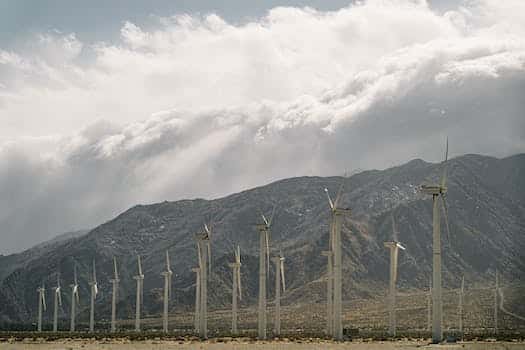In today’s world, where sustainability and eco-consciousness are becoming increasingly important, eco-friendly resorts offer a perfect solution for travelers who want to enjoy their vacations while minimizing their environmental impact. These resorts prioritize practices such as energy efficiency, waste reduction, and conservation of natural resources, without compromising on the comfort and luxury that travelers seek. In this article, we will explore ten exceptional eco-friendly resorts around the world that provide a sustainable travel experience, allowing you to indulge in nature’s beauty while treading lightly on the planet.
- 1. Introduction
- 1.1. What are eco-friendly resorts?
- 1.2. The importance of sustainable travel
- 1.3. Benefits of staying at eco-friendly resorts
- 1.4. Growing popularity of eco-friendly resorts
- 2. Features of eco-friendly resorts
- 2.1. Renewable energy sources
- 2.2. Water conservation practices
- 2.3. Use of organic and locally sourced materials
- 2.4. Waste management and recycling initiatives
- 2.5. Protection of local flora and fauna
- 3. Activities and amenities at eco-friendly resorts
1. Introduction
In today’s world, sustainable travel has become more important than ever. Travelers are increasingly seeking eco-friendly resorts that prioritize environmental conservation and minimize their carbon footprint. These resorts offer a unique opportunity to enjoy a memorable vacation while also making a positive impact on the planet. In this article, we will explore 10 incredible eco-friendly resorts that are leading the way in sustainable hospitality. From breathtaking locations to innovative green practices, these resorts are perfect for travelers who want to experience luxury without compromising their commitment to the environment.
1.1. What are eco-friendly resorts?
Eco-friendly resorts, also known as sustainable resorts or green resorts, are accommodations that prioritize environmentally friendly practices and aim to minimize their impact on the natural surroundings. These resorts are designed and operated in a way that promotes sustainability, conservation, and responsible tourism. From their construction materials to their daily operations, eco-friendly resorts strive to reduce waste, conserve energy and water, and protect the local ecosystem. They adopt sustainable practices such as using renewable energy sources, implementing recycling programs, employing water-saving techniques, and supporting local communities. By choosing to stay at eco-friendly resorts, travelers can enjoy a guilt-free vacation while contributing to the preservation of our planet’s natural resources and biodiversity.
1.2. The importance of sustainable travel
Sustainable travel has become increasingly important in recent years as more people recognize the need to protect and preserve our planet. This growing awareness has led to a rise in eco-friendly resorts that cater to environmentally conscious travelers. These resorts strive to minimize their carbon footprint and promote sustainable practices throughout every aspect of their operations. By choosing to stay at an eco-friendly resort, travelers can enjoy a guilt-free vacation knowing that their accommodation is committed to reducing its impact on the environment. In this article, we will explore 10 exceptional eco-friendly resorts that offer sustainable travel experiences for those seeking a more responsible and eco-conscious way to explore the world.
1.3. Benefits of staying at eco-friendly resorts
Eco-friendly resorts have gained immense popularity in recent years due to the growing concern for the environment and sustainable travel. These resorts prioritize minimizing their ecological footprint and promoting responsible tourism practices. Staying at an eco-friendly resort not only allows travelers to enjoy a luxurious and comfortable vacation, but also contributes to the preservation of natural resources and the protection of local ecosystems. In this article, we will explore the various benefits of staying at eco-friendly resorts, highlighting their positive impact on the environment and the overall travel experience.
1.4. Growing popularity of eco-friendly resorts
The growing popularity of eco-friendly resorts is a reflection of the increasing concern for sustainable travel. With the rising awareness about climate change and environmental conservation, more and more travelers are seeking accommodation options that prioritize eco-friendliness. These resorts are designed and operated with a focus on minimizing their carbon footprint and preserving the natural surroundings.
Eco-friendly resorts offer a range of sustainable practices such as using renewable energy sources, implementing water conservation measures, and promoting local and organic food. They often incorporate eco-friendly building materials and design elements that blend seamlessly with the environment.
Travelers are drawn to eco-friendly resorts not only for their commitment to sustainability but also for the unique experiences they offer. These resorts provide opportunities to engage in eco-tourism activities like hiking, wildlife spotting, and participating in conservation projects. Guests can enjoy the beauty of nature while contributing to its preservation.
In this article, we will explore ten remarkable eco-friendly resorts that are leading the way in sustainable travel. From luxurious beachfront retreats to secluded jungle lodges, these resorts combine comfort, luxury, and environmental responsibility. Let’s discover these eco-conscious destinations and be inspired to make more sustainable choices in our travel journeys.
2. Features of eco-friendly resorts
Eco-friendly resorts offer a range of features that promote sustainable travel. These resorts prioritize environmental conservation and employ practices that minimize their carbon footprint. Here are some key features of eco-friendly resorts:
1. Renewable Energy: Eco-friendly resorts harness renewable energy sources such as solar power, wind turbines, or geothermal energy to meet their energy needs. This reduces reliance on non-renewable sources and helps decrease greenhouse gas emissions.
2. Sustainable Architecture: These resorts are designed using sustainable building materials such as bamboo, reclaimed wood, or recycled materials. They also incorporate energy-efficient designs, natural ventilation, and passive cooling techniques.
3. Water Conservation: Eco-friendly resorts implement water-saving measures like low-flow toilets, rainwater harvesting systems, and water recycling techniques. They encourage guests to participate in water conservation efforts during their stay.
4. Organic and Locally Sourced Food: These resorts prioritize serving organic and locally sourced food to reduce the carbon footprint associated with transportation and pesticide use. They often have their own organic gardens or support local farmers.
5. Waste Management: Eco-friendly resorts have effective waste management systems in place. They promote recycling, composting, and minimize the use of single-use plastics. Some resorts even have wastewater treatment facilities to ensure responsible disposal.
6. Conservation Initiatives: These resorts actively contribute to the conservation of local ecosystems and wildlife. They may have programs for reforestation, protection of endangered species, or organizing educational activities to raise awareness about the environment.
7. Eco-Friendly Amenities: Eco-friendly resorts offer amenities that align with sustainable practices. This can include eco-friendly toiletries, energy-efficient appliances, and the use of eco-friendly cleaning products.
By choosing to stay at an eco-friendly resort, travelers can enjoy a luxurious vacation while minimizing their environmental impact and supporting sustainable tourism.
2.1. Renewable energy sources
Renewable energy sources are an integral part of eco-friendly resorts, as they play a crucial role in reducing carbon emissions and promoting sustainability. These resorts utilize various renewable energy sources to power their operations, minimizing their reliance on fossil fuels. Here are some key features of eco-friendly resorts that emphasize the use of renewable energy sources:
1. Solar Power: Many eco-friendly resorts harness the power of the sun by installing solar panels to generate electricity. These panels convert sunlight into usable energy, reducing the need for traditional electricity sources.
2. Wind Energy: Some eco-friendly resorts take advantage of windy locations by installing wind turbines. These turbines capture the wind’s kinetic energy and convert it into electricity, providing a clean and renewable energy source.
3. Geothermal Energy: Resorts located near geothermal hotspots can utilize geothermal energy for heating and cooling purposes. Geothermal systems tap into the Earth’s natural heat, offering a sustainable alternative to conventional heating and cooling methods.
4. Hydropower: Resorts situated near rivers or water bodies may implement hydropower systems to generate electricity. By harnessing the force of flowing water, these resorts can produce clean energy without harming the environment.
5. Biomass: Eco-friendly resorts may also utilize biomass as a renewable energy source. Biomass refers to organic materials such as wood chips, agricultural waste, or even food scraps, which can be converted into energy through processes like combustion or anaerobic digestion.
By incorporating these renewable energy sources, eco-friendly resorts demonstrate their commitment to sustainable practices and contribute to a greener future for the travel industry.
2.2. Water conservation practices
Water conservation practices are an essential aspect of eco-friendly resorts. These resorts implement various strategies to minimize water usage and promote sustainable practices. One common feature is the use of low-flow fixtures and toilets that reduce water consumption without compromising guest comfort. Additionally, eco-friendly resorts often employ water-saving techniques such as rainwater harvesting and gray water recycling. This allows them to utilize alternative sources of water for irrigation and other non-potable needs. Furthermore, these resorts encourage guests to participate in water conservation efforts by offering options to reuse towels and linens, and by promoting responsible water usage throughout their stay. By incorporating these practices, eco-friendly resorts contribute to the preservation of our precious water resources while providing a comfortable and enjoyable experience for their guests.
2.3. Use of organic and locally sourced materials
Using organic and locally sourced materials is an essential feature of eco-friendly resorts. These resorts strive to minimize their carbon footprint and promote sustainability by using materials that are environmentally friendly and sourced from the local community.
By using organic materials, such as bamboo, timber, and natural fibers, eco-friendly resorts reduce the reliance on synthetic materials that are harmful to the environment. Organic materials are biodegradable and renewable, ensuring that the resort’s construction and operations have minimal negative impact on the ecosystem.
Locally sourced materials further contribute to the sustainability of eco-friendly resorts. By sourcing materials from nearby communities, resorts support the local economy and reduce transportation-related carbon emissions. Additionally, using local materials helps preserve the region’s cultural heritage and promotes a sense of authenticity for the guests.
The use of organic and locally sourced materials not only enhances the sustainability of eco-friendly resorts but also creates a unique and harmonious connection between the resort and its surroundings. Guests can experience a more immersive and responsible travel experience while enjoying the beauty of nature and supporting the local community.
2.4. Waste management and recycling initiatives
Waste management and recycling initiatives play a crucial role in the efforts of eco-friendly resorts to promote sustainable travel. These resorts prioritize the reduction, reuse, and recycling of waste to minimize their impact on the environment. By implementing effective waste management systems, they aim to minimize the amount of waste sent to landfills and promote the conservation of natural resources.
One common initiative is the implementation of comprehensive recycling programs. Eco-friendly resorts encourage guests to separate their waste into different categories such as paper, plastic, glass, and organic waste. These resorts provide clearly labeled recycling bins throughout their premises to make it easy for guests to participate in recycling efforts.
Moreover, eco-friendly resorts often adopt composting practices to manage organic waste. They set up composting facilities where food waste and other organic materials are collected and processed into nutrient-rich compost. This compost is then used to enrich the resort’s gardens and landscaping, reducing the need for chemical fertilizers.
In addition to waste management, these resorts also focus on reducing waste generation. They strive to minimize single-use plastics by providing reusable alternatives such as refillable water bottles, biodegradable or reusable toiletries, and cloth shopping bags. By offering these eco-friendly options, the resorts aim to reduce the amount of plastic waste that ends up in landfills or pollutes the oceans.
Furthermore, eco-friendly resorts often partner with local waste management facilities and recycling centers to ensure that their waste is properly processed. They collaborate with these organizations to stay updated on the best waste management practices and to support local recycling initiatives.
Overall, the waste management and recycling initiatives of eco-friendly resorts are designed to create a sustainable and responsible environment for travelers. By incorporating these features, these resorts contribute to the preservation of natural resources and encourage guests to adopt more eco-conscious habits during their stay.
2.5. Protection of local flora and fauna
Protection of local flora and fauna is a crucial aspect of eco-friendly resorts. These resorts prioritize the preservation and conservation of the surrounding natural environment, including the plant and animal species that inhabit the area. By implementing sustainable practices and responsible tourism guidelines, eco-friendly resorts aim to minimize their impact on the local ecosystem and promote biodiversity.
One of the key features of eco-friendly resorts is their commitment to preserving the native flora and fauna. They often collaborate with local conservation organizations and engage in habitat restoration projects. These resorts actively work towards protecting endangered species, maintaining the balance of ecosystems, and promoting the growth of indigenous plant species.
Eco-friendly resorts also provide educational programs and guided tours for visitors, highlighting the importance of protecting local flora and fauna. Through these initiatives, guests gain a deeper understanding of the delicate interdependence between humans and nature. By fostering a sense of environmental stewardship, eco-friendly resorts encourage visitors to actively participate in conservation efforts and contribute to the preservation of local biodiversity.
In addition, eco-friendly resorts design their facilities and infrastructure in a way that minimizes disruption to the natural surroundings. They use sustainable building materials, employ energy-efficient practices, and implement waste management systems to reduce their ecological footprint. By incorporating green spaces, such as gardens and natural reserves, within their premises, these resorts create a harmonious coexistence between guests and the local flora and fauna.
Overall, the protection of local flora and fauna is a fundamental principle of eco-friendly resorts. These resorts play a vital role in promoting sustainable travel by prioritizing the conservation of natural resources, preserving biodiversity, and raising awareness among visitors about the importance of protecting the environment.
3. Activities and amenities at eco-friendly resorts
Eco-friendly resorts offer a wide range of activities and amenities that not only provide entertainment and relaxation for guests, but also prioritize sustainability and the preservation of the environment. These resorts often have a strong focus on outdoor activities and offer opportunities for guests to explore and connect with nature. Activities such as hiking, biking, kayaking, and snorkeling are popular choices, allowing guests to immerse themselves in the natural surroundings while minimizing their carbon footprint.
Additionally, eco-friendly resorts often provide educational programs and workshops that promote environmental awareness and conservation. Guests can participate in guided nature walks, bird-watching excursions, or even learn about sustainable farming practices. These activities not only offer a unique and enriching experience but also encourage guests to develop a deeper understanding and appreciation for the environment.
Furthermore, eco-friendly resorts typically boast a range of amenities that are designed with sustainability in mind. Solar panels, rainwater harvesting systems, and energy-efficient appliances are commonly used to minimize the resorts’ impact on the environment. Many resorts also prioritize locally sourced and organic food options, supporting local farmers and reducing the carbon footprint associated with food transportation. Additionally, eco-friendly resorts often have eco-spas that offer organic and sustainable treatments, ensuring guests can indulge in relaxation without compromising their commitment to sustainability.
In conclusion, eco-friendly resorts offer a plethora of activities and amenities that align with sustainable travel practices. From outdoor adventures to educational programs, these resorts provide guests with opportunities to connect with nature while promoting environmental consciousness. With their emphasis on sustainability and eco-friendly practices, these resorts serve as excellent choices for travelers seeking a responsible and eco-conscious vacation.
3.1. Nature hikes and guided tours
Nature hikes and guided tours are popular activities offered at eco-friendly resorts. These resorts provide opportunities for guests to explore the surrounding natural environment and learn about the local flora and fauna. Experienced guides lead informative and engaging hikes, allowing visitors to connect with nature and gain a deeper appreciation for the biodiversity of the area. From leisurely walks through lush forests to challenging treks up scenic trails, there are options available for all fitness levels. These guided tours not only provide a chance to experience the beauty of nature firsthand but also promote education and awareness about environmental conservation and sustainable practices.
3.2. Organic farm-to-table dining options
Organic farm-to-table dining options are a highlight at many eco-friendly resorts, offering guests a unique and sustainable culinary experience. These resorts prioritize sourcing their ingredients from local organic farms, ensuring that the food served is fresh, healthy, and free from harmful chemicals. By promoting farm-to-table dining, these resorts support local farmers and reduce their carbon footprint by minimizing transportation distances. Guests can enjoy delicious meals made from seasonal, locally sourced ingredients, indulging in a variety of flavors while supporting sustainable agricultural practices. From vibrant salads to hearty soups and delectable main courses, the organic farm-to-table dining options at these resorts are sure to satisfy the taste buds of eco-conscious travelers.
3.3. Eco-friendly spa and wellness facilities
Eco-friendly spa and wellness facilities are becoming increasingly popular in sustainable travel. These resorts prioritize the use of renewable energy sources, organic products, and environmentally-friendly practices to provide guests with a relaxing and rejuvenating experience. From natural hot springs and mineral pools to yoga studios and meditation gardens, eco-friendly resorts offer a wide range of activities and amenities for guests to enjoy. These facilities are designed to promote wellness while minimizing the impact on the environment. By opting for eco-friendly spa and wellness facilities, travelers can indulge in self-care while contributing to the preservation of our planet.
3.4. Educational workshops and programs
Educational workshops and programs are a key feature of eco-friendly resorts, offering guests the opportunity to learn about sustainable practices and environmental conservation. These workshops are designed to educate and inspire visitors to make more eco-conscious choices in their daily lives. Topics covered in these workshops may include renewable energy, waste management, organic farming, and wildlife conservation. Through hands-on activities and interactive sessions, guests can gain valuable knowledge and skills that can be applied not only during their stay at the resort but also in their future endeavors. These educational programs aim to create awareness and promote a sense of responsibility towards the environment, encouraging guests to become ambassadors of sustainability.
3.5. Sustainable transportation options
Eco-friendly resorts are dedicated to providing sustainable transportation options for their guests. These resorts understand the importance of reducing carbon emissions and minimizing the impact on the environment. By offering various transportation choices, they aim to make it easier for travelers to explore the area while keeping their carbon footprint low.
One of the sustainable transportation options commonly found at eco-friendly resorts is the use of bicycles. Many resorts provide bicycles for their guests to use, allowing them to conveniently travel within the resort premises or even explore nearby attractions. Biking not only promotes physical activity but also reduces the reliance on fossil fuels.
Another popular option is the use of electric vehicles (EVs). Some eco-friendly resorts have their own fleet of electric cars or shuttles that guests can use to get around. These EVs produce zero emissions, contributing to cleaner air and a healthier environment.
Additionally, some eco-friendly resorts encourage guests to use public transportation. They provide information about local buses, trains, or boats, making it easier for travelers to explore the surrounding areas using sustainable modes of transportation.
By offering these sustainable transportation options, eco-friendly resorts strive to make sustainable travel more accessible and enjoyable for their guests. This way, travelers can experience the beauty of nature without leaving a negative impact on the environment.
Conclusion
In conclusion, these 10 eco-friendly resorts offer a perfect opportunity for sustainable travel. With their commitment to preserving the environment, promoting responsible tourism, and providing luxurious experiences, these resorts prove that sustainability and comfort can go hand in hand. Whether you are a nature enthusiast, an eco-conscious traveler, or simply someone who wants to make a positive impact, these resorts are worth considering for your next vacation.





